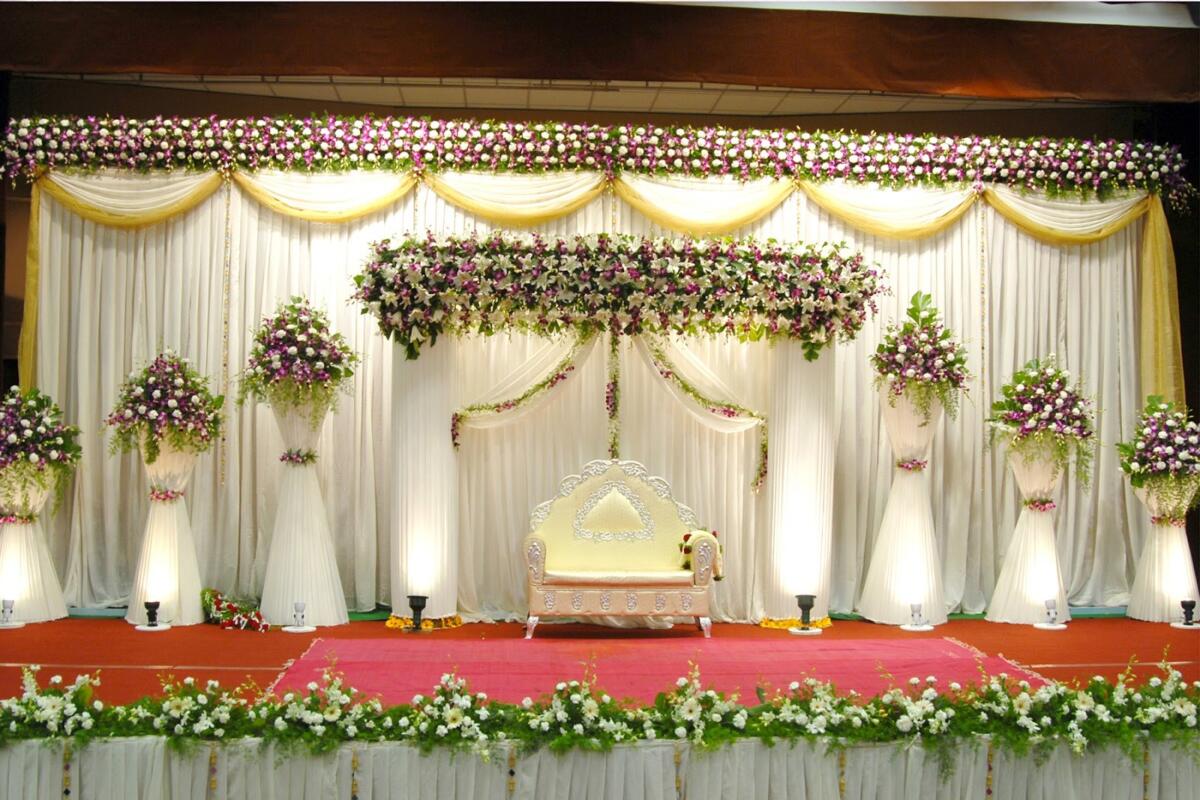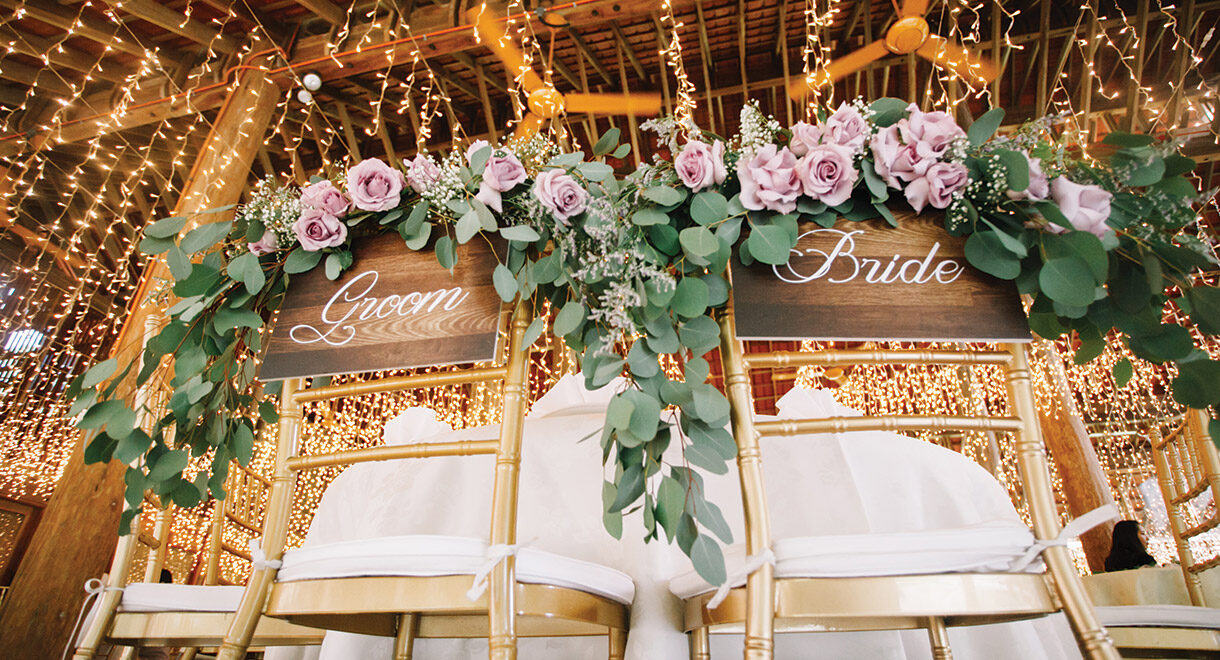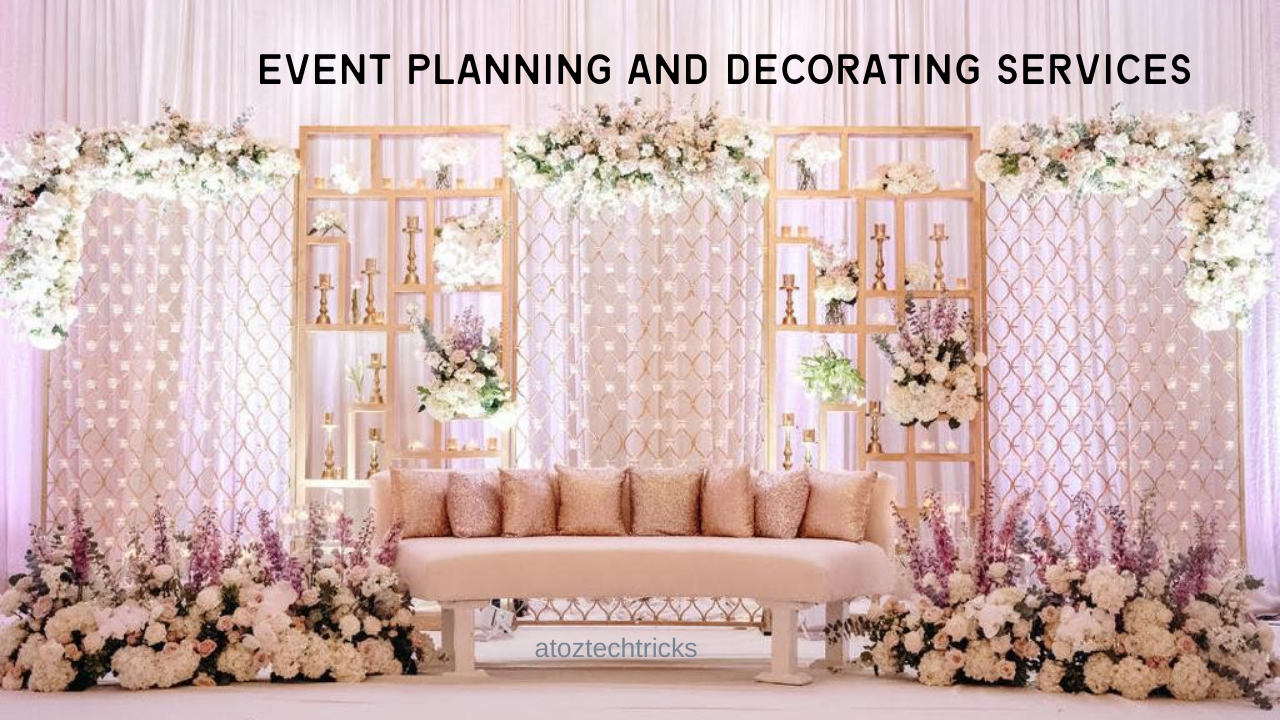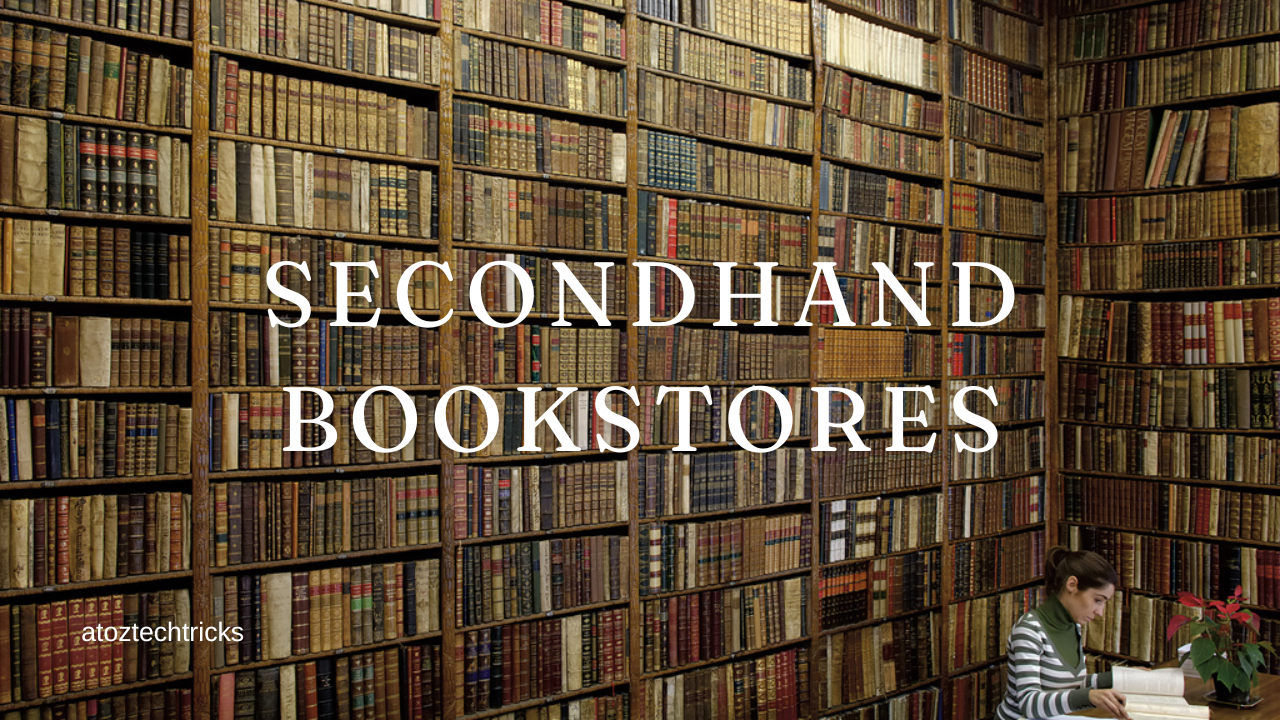Event Planning and Decorating Services: Creating Unforgettable Experiences
In the world of events, from weddings and corporate galas to intimate birthday celebrations, the role of event planning and decorating services is crucial. These services are designed to transform a simple gathering into a memorable experience, meticulously crafted to meet the client’s vision and exceed their expectations. Event planners and decorators bring together creativity, organization, and an eye for detail to curate events that leave lasting impressions on guests.
Event planning and decorating services encompass a wide range of activities, including venue selection, theme development, budget management, vendor coordination, and the creation of stunning visual environments. Whether it’s a small, private event or a large-scale public gathering, these services play a pivotal role in ensuring the event runs smoothly and is visually captivating.
This article delves into the various aspects of event planning and decorating services, exploring their significance, the different types of events they cater to, and the key elements involved in creating a successful event.
Home Cleaning and Organization Services: A Comprehensive Guide to Starting and Growing Your Business
The Importance of Professional Event Planning and Decorating Services
1. Expertise and Experience
One of the primary reasons for hiring professional event planners and decorators is their expertise and experience. Planning an event, regardless of its size, involves numerous moving parts that require careful coordination. Professionals in this field have a deep understanding of what it takes to organize a successful event. They bring experience from handling a variety of events, which enables them to anticipate challenges and find solutions quickly.
Their expertise also extends to vendor management. Event planners have established relationships with various vendors, including caterers, florists, photographers, and entertainers. These connections can result in better deals and smoother coordination, ensuring that all aspects of the event are executed flawlessly.
2. Time and Stress Management
Planning an event can be a time-consuming and stressful endeavour, especially for those who are not experienced in the field. From booking venues to managing guest lists and ensuring everything runs on schedule, the tasks can quickly become overwhelming. Professional event planners take on these responsibilities, allowing clients to focus on enjoying the event rather than worrying about the logistics.
Event decorators, on the other hand, relieve the stress of creating a visually appealing environment. They take care of all the details, from selecting the right colour schemes to arranging flowers and designing tablescapes. This attention to detail ensures that the event’s aesthetic is cohesive and reflects the client’s vision.
3. Customization and Personalization
Every event is unique, and professional event planners and decorators excel in customizing and personalizing events to suit the client’s preferences and needs. They work closely with clients to understand their vision, whether it’s a romantic wedding, a corporate launch, or a themed birthday party. This collaboration ensures that every aspect of the event, from the decor to the entertainment, aligns with the client’s expectations.
Moreover, event planners and decorators are skilled at bringing creative ideas to life. They can suggest innovative themes, unique decor elements, and interactive activities that make the event stand out. This level of customization and creativity is often difficult to achieve without professional assistance.
4. Budget Management
One of the most challenging aspects of event planning is managing the budget. It’s easy for costs to spiral out of control when there are so many details to consider. Professional event planners are adept at creating realistic budgets and sticking to them. They have the knowledge and experience to prioritize spending, ensuring that the most critical elements of the event receive the necessary attention and funding.
Event planners can also negotiate with vendors to get the best possible prices, which can result in significant cost savings. Their ability to manage the budget effectively ensures that clients get the most value for their money without compromising on the quality of the event.
Types of Events Catered by Event Planning and Decorating Services
Event planning and decorating services cater to a wide range of events, each with its own set of requirements and challenges. Below are some of the most common types of events where these services are indispensable:
1. Weddings
Weddings are among the most significant events in people’s lives, and they require meticulous planning and attention to detail. Event planners and decorators play a crucial role in creating the perfect wedding day. From selecting the venue and coordinating with vendors to designing the decor and managing the timeline, they ensure that the couple’s vision is brought to life.
Wedding planners often help with every aspect of the event, including guest list management, seating arrangements, menu selection, and entertainment. Decorators focus on creating a romantic and visually stunning environment, with elements such as floral arrangements, lighting, and table settings that reflect the couple’s style and theme.
2. Corporate Events
Corporate events, such as conferences, product launches, and company celebrations, require a different approach compared to personal events like weddings. The focus is often on professionalism, brand representation, and seamless execution. Event planners for corporate events manage logistics, such as venue booking, scheduling, and speaker coordination, while ensuring that the event aligns with the company’s objectives and branding.
Decorators for corporate events create a polished and professional environment that reflects the company’s image. This might involve designing stages for presentations, setting up branded decor elements, and ensuring that the overall aesthetic is conducive to networking and business discussions.
3. Social Gatherings
Social gatherings, such as birthday parties, anniversaries, and family reunions, are events that bring people together to celebrate and enjoy each other’s company. These events often require a more relaxed and personalized approach. Event planners help organize these gatherings by handling invitations, coordinating activities, and managing the event timeline.
Decorators for social gatherings focus on creating a fun and festive atmosphere. They might use vibrant colours, themed decorations, and interactive elements like photo booths or games to enhance the experience for guests.
4. Themed Parties
Themed parties are a popular choice for those looking to create a unique and immersive experience for their guests. Whether it’s a 1920s Great Gatsby party, a Hawaiian luau, or a Halloween bash, themed events require careful planning and creative decor to bring the theme to life.
Event planners for themed parties work on every detail, from sending out themed invitations to organizing themed activities and entertainment. Decorators play a key role in transforming the venue into a space that fully embodies the chosen theme, using props, lighting, and decor elements that transport guests into a different world.
5. Fundraisers and Charity Events
Fundraisers and charity events are essential for raising awareness and funds for important causes. These events often involve a mix of formal and informal elements, including speeches, auctions, and entertainment. Event planners for fundraisers manage the logistics, including ticket sales, sponsor coordination, and agenda planning.
Decorators for charity events focus on creating an elegant and inspiring atmosphere that encourages donations and support. This might involve designing a sophisticated dining area, creating eye-catching displays for auction items, and using decor elements that reflect the cause being supported.
Home-Based Business Ideas: Unlocking the Potential of Entrepreneurship from the Comfort of Your Home
Key Elements of Successful Event Planning and Decorating
1. Venue Selection
The venue is one of the most critical elements of any event. It sets the tone for the entire experience and plays a significant role in the event’s success. Event planners are responsible for finding and securing the perfect venue that meets the client’s needs, whether it’s a grand ballroom for a wedding, a conference centre for a corporate event, or a cosy backyard for a birthday party.
When selecting a venue, planners consider factors such as location, capacity, amenities, and budget. They also ensure that the venue aligns with the event’s theme and aesthetic. For example, a rustic barn might be perfect for a country-themed wedding, while a sleek, modern venue might be ideal for a corporate launch event.
2. Theme and Concept Development
A well-defined theme or concept is the foundation of a successful event. It guides every aspect of the planning and decorating process, from the invitations to the decor and entertainment. Event planners work closely with clients to develop a theme that reflects their vision and the event’s purpose.
Once the theme is established, decorators bring it to life through carefully curated design elements. This includes selecting colour schemes, designing custom decor pieces, and creating a cohesive look that ties everything together. A strong theme enhances the guest experience by creating a memorable and immersive environment.
3. Budget Management and Allocation
Effective budget management is essential for ensuring that all aspects of the event are covered without overspending. Event planners work with clients to establish a budget and then allocate funds to different areas, such as venue rental, catering, decor, and entertainment. They also keep track of expenses throughout the planning process to ensure that the event stays within budget.
Budget management involves making strategic decisions about where to spend money and where to save. For example, a client might choose to splurge on high-end catering while opting for more affordable decor options. Event planners guide these decisions to ensure that the client’s priorities are met.
4. Vendor Coordination
Vendors play a crucial role in the success of an event, providing services such as catering, photography, entertainment, and rentals. Event planners are responsible for coordinating with vendors to ensure that everything runs smoothly on the day of the event. This involves negotiating contracts, managing timelines, and overseeing the setup and execution of services.
A good event planner has established relationships with reliable vendors, which can result in better deals and more seamless coordination. They also act as the point of contact for vendors on the day of the event, ensuring that any issues are resolved quickly and without disrupting the event.
E-learning Platforms and Courses: Revolutionizing Education in the Digital Age
5. Event Timeline and Schedule Management
A well-organized event timeline is crucial for ensuring that everything happens on schedule. Event planners create detailed timelines that outline the sequence of events, from setup and guest arrival to speeches, meals, and entertainment. This timeline is shared with all relevant parties, including vendors and the event staff, to ensure that everyone is on the same page.
On the day of the event, the planner’s role is to oversee the execution of the timeline, making adjustments as needed to keep the event running smoothly. This requires strong organizational skills and the ability to think on one’s feet, as unexpected issues can arise that require quick solutions.
6. Decor and Aesthetics
The decor is one of the most visible and impactful elements of an event. It sets the mood and creates the atmosphere that guests will experience from the moment they arrive. Event decorators are responsible for designing and implementing the decor, which includes everything from floral arrangements and table settings to lighting and signage.
A successful decor plan requires a keen eye for detail and a strong understanding of the event’s theme and purpose. Decorators work closely with clients to understand their vision and then use their creativity to bring that vision to life. They also consider practical aspects, such as the layout of the venue and the flow of guests, to ensure that the decor enhances the overall experience.
7. Entertainment and Activities
Entertainment and activities are key components of any event, providing guests with enjoyable experiences and opportunities to engage with each other. Event planners are responsible for selecting and coordinating entertainment that aligns with the event’s theme and purpose. This might include hiring musicians, DJs, speakers, or performers, as well as organizing interactive activities like games or workshops.
The type of entertainment chosen depends on the nature of the event and the preferences of the client. For example, a corporate event might feature a keynote speaker or a panel discussion, while a wedding might include live music and a dance floor. The goal is to create a lively and engaging atmosphere that keeps guests entertained and contributes to the overall success of the event.

The Role of Technology in Event Planning and Decorating
1. Event Management Software
Technology has revolutionized the way events are planned and executed. Event management software is a powerful tool that helps planners stay organized and manage all aspects of an event in one place. This software often includes features like budget tracking, vendor management, guest list management, and timeline creation.
Using event management software allows planners to streamline the planning process, reduce the risk of errors, and improve communication with clients and vendors. It also provides valuable insights and analytics that can be used to improve future events.
2. Virtual and Hybrid Events
The rise of virtual and hybrid events has been one of the most significant trends in the event planning industry in recent years. These types of events combine in-person and online elements, allowing guests to participate from anywhere in the world. Virtual and hybrid events require a different approach to planning and execution, with a focus on technology and digital engagement.
Event planners for virtual and hybrid events must coordinate with tech teams to ensure that the event runs smoothly across all platforms. This might involve setting up live streaming, managing virtual breakout rooms, and ensuring that all participants have a seamless experience, whether they are attending in person or online.
Mobile App Development for Education: Revolutionizing Learning in the Digital Age
3. Social Media and Event Promotion
Social media plays a crucial role in promoting events and engaging with guests before, during, and after the event. Event planners use social media platforms to create buzz, share updates, and interact with attendees. They might also use social media to collect feedback and share highlights from the event.
Social media is also an important tool for event decorators, who can showcase their work and attract new clients by sharing photos and videos of their decor setups. Platforms like Instagram and Pinterest are particularly popular for sharing visually appealing content and inspiring potential clients with creative ideas.
Event planning and decorating services are essential for creating memorable and successful events. From weddings and corporate events to themed parties and fundraisers, these services provide the expertise, creativity, and organization needed to bring a client’s vision to life. Professional event planners and decorators handle every detail, ensuring that the event runs smoothly and leaves a lasting impression on guests.
By understanding the key elements of event planning and decorating, such as venue selection, theme development, budget management, and vendor coordination, clients can appreciate the value of hiring professionals to manage their events. With the right team in place, any event can be transformed into an unforgettable experience that exceeds expectations and creates lasting memories.





Post Comment